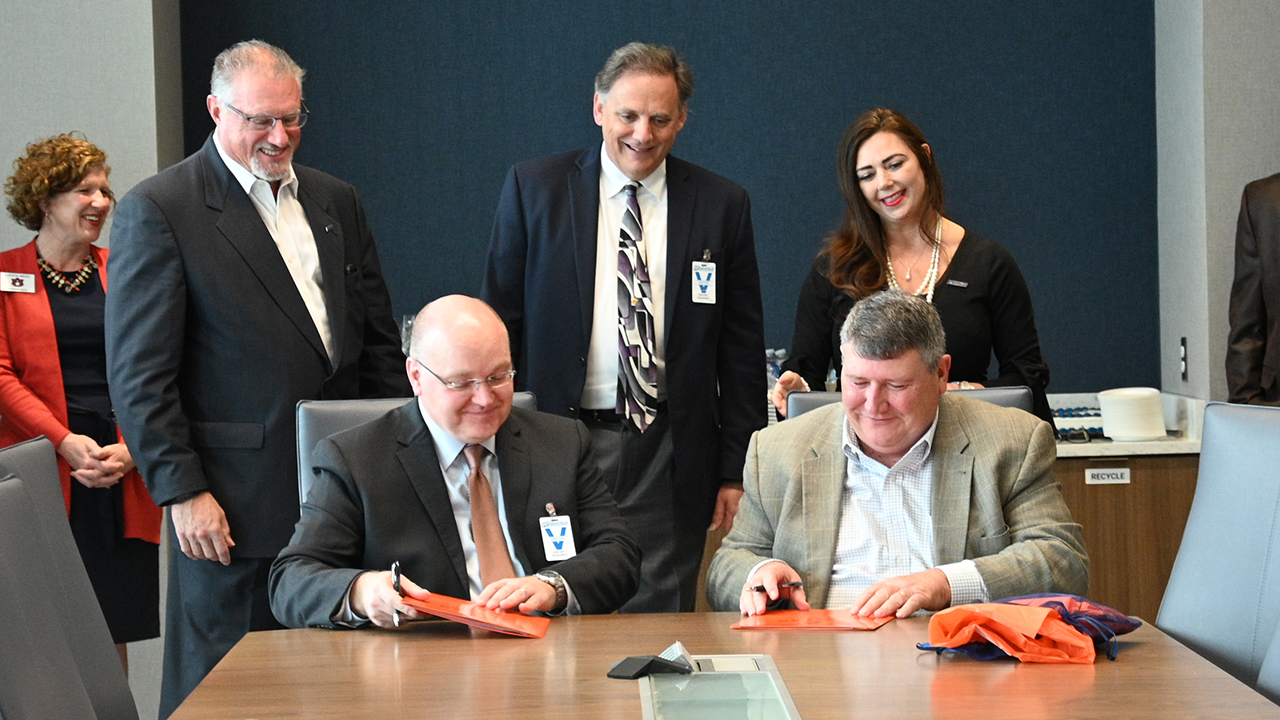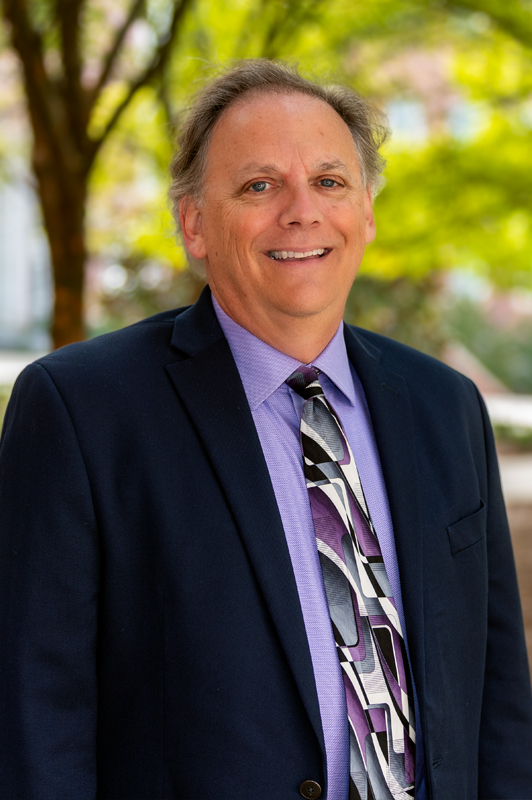Auburn’s first engineering management cohort successfully finishes pilot semester
Published: Jun 8, 2020 4:17 PM
By Karen Hunley
As the first fully remote-learning summer semester begins at Auburn, so does the first summer course of the new cohort partnership between the Samuel Ginn College of Engineering and Radiance Technologies in Huntsville.
In January, the two parties signed an agreement to offer the first-ever Master of Engineering Management (MEM) Cohort Program to Radiance employees, allowing them to earn their master’s degree online while continuing on their current career path. Offered through the Department of Industrial and Systems Engineering (ISE), the MEM program provides students with a business management approach to engineering with a technical specialization.
Eight employees initially signed on for the cohort’s spring 2020 pilot course, Project Management. All eight passed and are either continuing with the program this summer or starting back in the fall. More than a dozen additional employees have also expressed interest in joining the cohort this fall.
“Cohort education is valuable for all involved parties,” said John Evans, chair of the Department of Industrial and Systems Engineering. “From the perspective of students, it’s easier to start your graduate education with someone you know – you aren't jumping off the cliff by yourself. From our perspective in the department, it expands our programs and improves the performance of our students.”
Radiance also benefits from the partnership by helping ensure the longevity of employees who join the cohort, who sign on to stay at Radiance for the duration of the two-year MEM program plus at least one additional year. Cohort participants who successfully complete all course requirements are fully reimbursed for their tuition.
“We feel like we are building the next generation of leaders; that’s why we are willing to make essentially a $30,000 investment in each employee,” said Lane Fabby, founding chancellor of Radiance University, the company’s employee continuing education and professional development arm. “These are the people we will be looking to in the future to run the company.”
The partnership officially formed between Radiance and ISE after just three months of working diligently together to develop the cohort instructional model in time for the spring 2020 semester. Evans said his department was already interested in the cohort idea and researching opportunities when Fabby and her team approached him last fall.
“We already knew what a great school Auburn was, but we also realized that Auburn Engineering leadership was willing to think differently,” Fabby said. “They recognize education is changing and that it’s cool to trailblaze and create new instructional models that may be mimicked by others in the future.”
Cohort members will take the same sequence of classes at the same time, finishing together in two years (the spring 2020 pilot group will skip the class they took this spring and/or summer when it comes back around). Like all MEM students, cohort members can choose between four degree specialization options: systems, manufacturing, occupational safety and ergonomics, and product innovation.
For Radiance President David Diaddario, the decision to join the cohort was easy, despite being late in his career and having already achieved so much success.
“I was excited because (the cohort) was with Auburn and I had been thinking about going back for a while,” said Diaddario, who has a bachelor’s degree in electrical engineering from Auburn. “When this presented itself, I knew I wanted to take advantage of the opportunity.”
However, like many older students when they first begin an online program, Diaddario was a little nervous about distance learning and getting accustomed to the educational technology. He said he quickly discovered the convenience of the online format and enjoys the flexibility.
The cohort also allows students to form a relationship with their fellow classmates, which is inherent of traditional on-campus programs but is often missing from online courses.
“I can easily walk downstairs to one of the other guys’ offices and talk with him about a class issue,” Diaddario said. “To me, it’s the best of both worlds – the flexibility of distance learning, but I still have that connection with the classmates.”
Evans said he hopes the fall cohort class (and all classes moving forward) will also include some face-to-face interaction between students and Auburn ISE faculty. This part of the program was derailed in the spring due to the COVID-19 pandemic, but he initially planned to have two classes per semester taught live at Radiance and streamed back to the on-campus MEM students.
Evans also anticipates that this is just the beginning for the Auburn ISE department and its future with developing cohorts. In addition to beginning a new cohort at Radiance in 2022, after the first group graduates, he and his team have already proposed the instructional model to at least seven other interested companies in Huntsville.
“It’s a win-win for Auburn and for employees who are going to see benefits to their career long-term,” Evans said. “It’s also going to help the companies retain valuable, educated employees.”
Media Contact: , kam0003@auburn.edu, 334.844.2224
Auburn Engineering Dean Christopher B. Roberts (seated left) and Radiance Technologies CEO Bill Bailey (seated right) signed a Memorandum of Agreement with Radiance, based in Huntsville, in January 2020 to offer a fully online Master of Engineering Management (MEM) Cohort Program to full-time Radiance employees.


